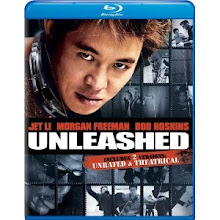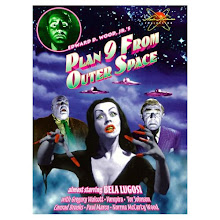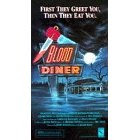The Coen brothers have mastered the art of illustrating their characters through environment, pace, speech, and tone rather than strictly through dramatic action. The environment that we are taken through in the beginning (and throughout the whole film) sets everything up so well. We are placed in a setting so desperate, so unusual (and at the same time completely real/believable), that the Coen’s are permitted to do almost anything with their characters and we will be convinced by it. The midwestern accent and attitude (sometimes known as ‘Minnesota nice’ [‘darn-tootin’, ‘you-betcha’, ‘ah-sher’, ‘alrighty now’, and on and on]) adds to this greatly.
We are also heavily convinced by the disclaimer at the beginning which tells us that all of the events are exactly true to fact, etc. But in fact, that events are not completely true. The events are very loosely based on some police reports, everything else is imagined and created by the Coen’s. This was brought to my attention by Torben, who also posts on this site (as Torben B), which I’m sure he’ll also mention in his post (hopefully I’m not stealing his thunder). I think he discovered it on some insight while watching the movie (...how would’ve anybody known where/how Carl hid that money out in the snow by the barbed-wire fence...he hid it without telling anybody, and soon after was put into the wood-chipper). Torben’s questioning was validated by the extras he watched on the DVD. And as I look around online it appears to be so...it was just a tactic by the Coen’s to get us to suspend our disbelief that much more. Some people may be bothered by this, feeling deceived or betrayed, but I don’t mind it at all. There has recently been a big uproar about this in the publishing world about things being "published appropriately/honestly". Like, for instance, the James Frey books that you all probably heard about. Things can’t be published as “memoirs” (or as being ‘true’/’factual’) if there is any doubt to their ‘factualness’ or ‘truth’ whatsoever. I personally think that any amount of remembering and recording personal/historical events requires a certain amount of imagination and invention on the part of our fallible memories. That is what makes art interesting...a degree of mystery/creation/imagination. There was an interesting article in Harper’s Magazine that was recently brought to my attention that applies to this discussion...I posted it over on my blog, if you’d like to read it just click the link. I highly recommend it, it is called “A Lie That Tells the Truth” by Joel Agee. The title comes from a quote by Picasso: “Art is a lie that tells the truth.”
The only reason I would object to this kind of method is if it were to harm somebody else, put somebody else in the way of harm, or to intentionally deceive or cover something up that was important. The film Hotel Rwanda for instance, omitted some imperative facts (or I should say got the facts wrong...or just straight lied about/covered up certain things) about the Rwandan genocide, which disturbs me very much. Particularly, how it portrayed the UN, and certain factual events concerning the UN's involvement. A story that horrific and important should be told as close to what really happened as possible, otherwise it shouldn't be masked as being factual, or relating to an actual incident. If you are interested in this stuff concerning Hotel Rwanda, to start, CLICK HERE. I could (and would love to) go on about this, but it’s a bit to tangential here. So, if you are interested in either of those conversations, we could go on about it in the comments.
Hotel Rwanda told lies that covered up the truth, harm done. In the case of Fargo, I would say "no harm, no foul". So, in light of Fargo's newly discovered (to me) not-so-true-to-fact nature, I don’t think it changes the power and amazing-ness of the film. In fact, I would only say that even more credit is then due to the Coen’s for constructing and creating such a well filmed, perfectly edited, tightly knit story. The Coen’s shoot scenes in an incredibly economic way. Almost every shot is set-up in such a way that a minimal amount of cutting and shifting around has to be done, while also giving the maximum amount of necessary information in each frame. The way that they are able to build suspense is beyond me. Fargo is very masterful and methodical suspense. The Coen's really perfected it in their newest film “No Country For Old Men”. In "No Country For Old Men", they take suspense to a whole new level, AND with no identifiable musical score or tension building sound! (Outside of the field sound they gather and the sound that is directly connected to what appears on screen.) The absence of music and sound effects in that movie actually ends up increasing the tension.
Something else that I wanted to talk about in response to some of the other posts is Fargo’s dark humor. I think the humor in Fargo is brilliant, not to mention ridiculously funny. The silly little moments of humor like...:
Carl: Shep said you'd be here at 7:30. What gives, man?
Jerry: Shep said 8:30.
Carl: We've been sitting here an hour. He's peed three times already.
...are countless, and are due to incredible writing. I have to also mention the hilarious exchange in the car where Carl endlessly threatens Grimsrud:
“I don't have to talk, either, man...........see how you like it...........just total f****n' silence................two can play at that game, smart guy................we'll just see how you like it....................total silence.” Hahaha!
But outside of this sort of easy going humor, Fargo has a lot of humor of a much more visceral type. The interesting dark humor, where we laugh in ugly and cruel situations is rather disturbing to some. I think that our response to laugh in these situations is rather complex. Laughing at it can be a way of distancing ourselves from the horror of what we are experiencing. If we can’t laugh, or if we repress laughter, then we have to really deal with the horror of what is on screen...and who wants to do that? It can just be the silliness of a strange juxtaposition (comic relief), for example: Jean looking stupid and blindly running around in the snow in the midst of her kidnapping by two heartless/murdering bastards. Of course, this is a very intentional tactic executed by the directors. In my mind this doesn’t suggest the “twisted-ness” of the directors, or the material itself. Rather, it is projected (quite literally) upon us as viewers and we are now in the “situation”. What is our response? Does our reaction to the material say more about us than it does about the material/makers of the material? I think so. We might be a little sick if we were laughing at Jean because we know her fate (Carl). We might only be silly if we are laughing at the way she’s running around, which seems absurd in the situation she is in (also, Carl?). If we don’t laugh at all, and we get scared, maybe we have some deep rooted fear of being victimized in a similar way. Or, if we don't laugh maybe we are deeply disturbed...Grimsrud isn’t laughing, and I think it is because he is inhuman, he’s a cruel, barbarous person who doesn't laugh at anything. (LATER ADDITION: or was Grimsrud really laughing? On my second thought I can't recall for certain....)
When you really think about it, most jokes we make are on account of somebody else’s misfortune or loss, what is that about?
I’d like to go on into the character development and so forth, but the other posts did a good job of that. I just want to quickly point out that almost every one of the major characters is sort of acting out of their stereotype in complex ways. Most interestingly (in my opinion), Jerry, the iconic car salesman who will do whatever he can to make the deal, and to make a buck...including using his wife as a hostage/decoy.
What a great film!
I'm looking looking forward to the Coen’s next film, "Burn After Reading"? I think it is coming out in September. (Click this link to see the trailer for it, which looks great). I would have to say my favorite Coen brothers film so far is "The Big Lebowski", what do the rest of you think?
Subscribe to:
Post Comments (Atom)






























































2 comments:
Complex is a good word to describe the reaction of laughing at dark humor. I think it's important to consider dark material without comedy sometimes. I just watched "Gone Baby Gone" and it was very dark, troubling and really just depressing, but I feel rewarded having experienced it, and I think the issues raised were very worthy of consideration. But I have to be really ready to experience that kind of heavy dark drama, and I certainly don't always want to.
Perhaps the most simple result of the employment of dark humor is that it makes the film more bearable in a way and therefore more accessable. I think that there's no need for the comedy to get in the way of our taking the situations and issues of the film very seriously, but the mental and emotional work becomes ours to do. Ultimately, I'm glad there are all kinds of cinematic styles for presenting dark and disturbing material, and we're lucky to have the Cohen's trying new and unexpected methods of representation rather than just following the old prescribed methods.
Favorite Cohen Bros. movie could be No Country these days, but I love Lebowsky and Raising Arizona for that matter. Still if for no other reason than it's been with me longer than No Country, my favorite would have to be good old Fargo.
I'd have to say my favorite Coen bros. film is their first, "Blood Simple" (1984). My least favorite of theirs is easily "Intolerable Cruelty" (2003). Can anyone argue for the redeeming qualities of that movie? Luke Hickman would, if he were "playing" on this site with us. Where is Luke, anyway?
"Fargo's" dark humor and our reaction to it has been discussed much already. (I'd still like to hear more thoughts on what "the point" to this movie is. Does it have a moral or a message?) Back to the humor, in my life I often laugh at inappropriate times as a coping mechanism, much to my wife's chagrin. It helps me deal with uncomfortable situations. But sometimes films (especially horror films) juxtapose humorous scenes back to back with horror scenes because the emotional distance we must "travel" between laughter and horror is much farther than indifference to horror, which makes the experience seem that much more intense to us. I think this principle is part of the reason "Fargo" has dark humor; the other part is the Coens' sly sense of humor.
Post a Comment